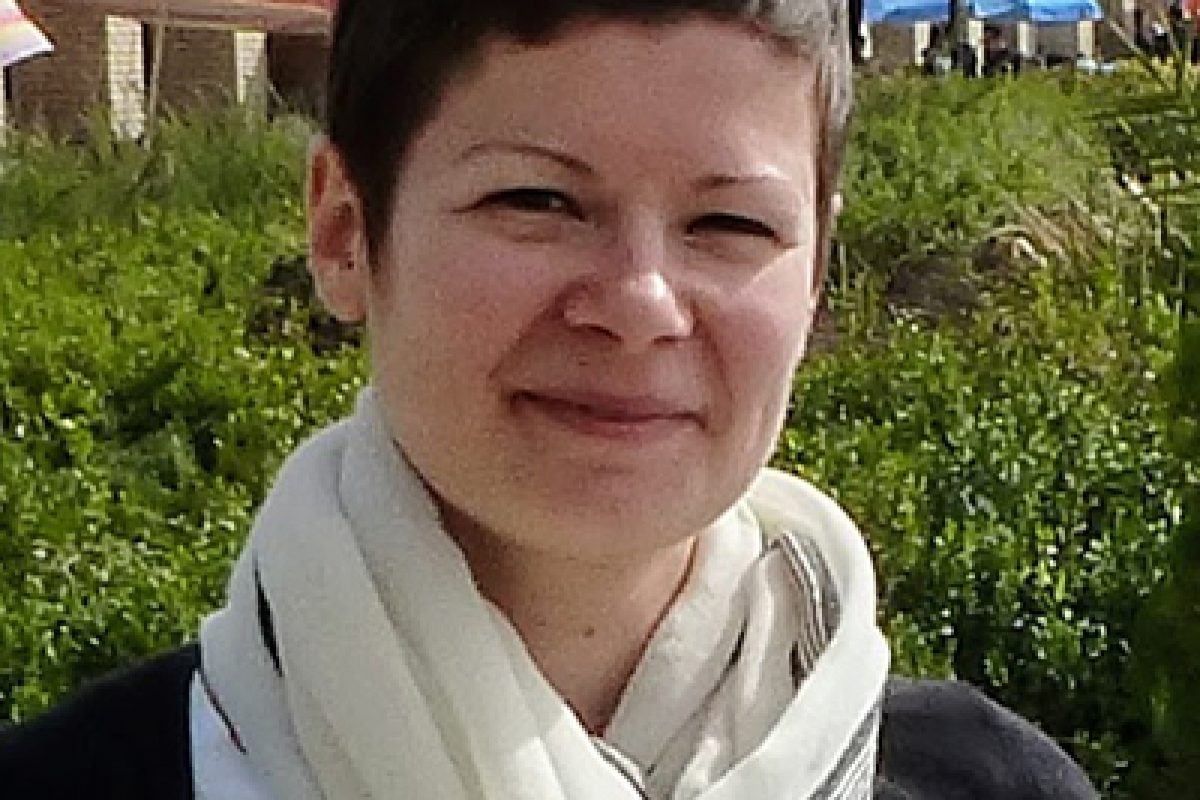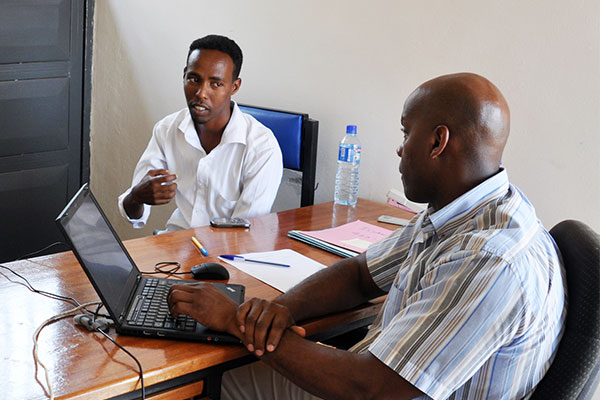Raphaelle Goyet, Operations Officer at ICMC Geneva

Raphaëlle Goyet is an Operations Officer at ICMC’s Headquarters in Geneva, Switzerland. She spent several years in the field as an ICMC Resettlement Deployment Scheme staff member, working in collaboration with the United Nations’ High Commissioner for Refugees (UNHCR) in Uganda, Sudan, and Iraq. Currently, she oversees the implementation of ICMC’s programs in Pakistan and Syria.
How did you become interested in migration issues?
It all started in Malta, while I was studying for my Master’s Degree in Law. During my time there, I met several asylum seekers in one of the local reception centers. I was shocked by the living conditions they had to endure while awaiting the result of their asylum application and I started becoming more and more interested in their situation. After graduating, I was hired by “Forum réfugiés”, a French organization where I would provide legal, administrative, social and health care assistance to asylum seekers accommodated in a transit center and accompany those who had been granted refugee status through the first steps of their integration process in France. In a way, I was both a jurist and a social worker. Later on, I decided I wanted to explore the countries the refugees were fleeing, so to better understand their background and the reasons for their flight.
You started working with ICMC as a resettlement expert in Africa. What were your first missions like?
In July 2012, I left to Nakivale – in the southwest of Uganda – as a deployee with the ICMC-UNHCR Resettlement Deployment Scheme. I was living in a refugee settlement hosting over 60,000 refugees, where I would conduct assessment interviews and provide legal counseling to people hailing from the Great Lakes region (Congo and Burundi) and from the Horn of Africa (Somalia, Eritrea, and Ethiopia). As part of my role, I also had to determine the protection needs of unaccompanied or separated refugee children at risk. Living conditions were rather basic, with only one generator for both electricity and running water; distractions were rare, but I had friendly colleagues who warmly welcomed me and did their best to make me feel at home.
Despite the impressive heavy rains that would regularly flood my office and a couple of Ebola outbreaks, I realized afterward that Uganda had actually been a far more hospitable duty station than the next one. In April 2013, I went on a new mission to Kassala, Sudan: the city, with its 400,000 inhabitants, lacked major infrastructure but was rich in sun and deserts! Located more than 8 hours from the capital, Khartoum, but less than 20km from the Eritrean border, I used to visit the many refugee camps located as far as three hours from Kassala, mostly hosting Eritreans. Experiencing for the first time temperatures up to 40-45 degrees Celsius and sometimes terrible sandstorms, I was always impressed by the ease with which our local drivers could find their way driving out of track in these desolate areas.
After the first two missions, you were assigned to a new experience in Iraq. What were your duties there?
In November 2013, a new mission took me to Iraq, in Erbil to be precise, the capital of the autonomous region of Iraqi Kurdistan. I remained there for two years. I was tasked with interviewing refugees of different nationalities, to determine whether they would match the criteria to be resettled to a third country (be it the United States, Sweden, Australia, and so on). Unfortunately, many things changed in Iraq during that period. The land that used to welcome so many Syrian and Palestinian refugees turned once again into a conflict-torn region which people would flee because of the actions of the local militia, Al Qaida and the Islamic State.
Why did you decide to leave Iraq?

When you are off to a field mission, you put your private life on pause because the distance and the dedication to the job don’t leave much time or energy for anything else. As you put aside all superficial matters, you also realize the importance of our dear ones, family and friends. When I was about to turn 35, I decided to leave Erbil and apply for a Headquarters position with ICMC – the organization which had originally deployed me to the field – which also happened to be closer to my native region in France.
I am now supervising ICMC’s programs supporting refugees in Pakistan and internally displaced persons in Syria. This position has helped me grasp all the challenges of the humanitarian sector, having to respond to more and more needs with fewer and fewer resources while also ensuring the respect of additional increasingly strict rules of management and accountability standards.
Have your experiences in Africa and the Middle East affected you personally?
My choice to return to Europe hasn’t been as simple as I expected. By now, the way I look at the world has changed. It’s not easy to convince yourself you’re still doing enough for the people you assist or stop feeling guilty just because you’re no more in the field with them. It is indeed difficult to see returns and reap the benefits of your work immediately while working away from those you try to help.
Assisting people of different nationalities and cultures is a real opportunity to open yourself up to the outside world, something which can lead to enriching exchanges. I am touched by the suffering faced every day by civilians that I met and I am outraged by Europe’s indifference to the refugee crisis. I do my best trying to work on accurate reports and figures so that I can remind those who fear a “refugee invasion” that Europe falls short of doing as much as Syria’s neighboring countries, which in comparison have fewer resources and capacity.